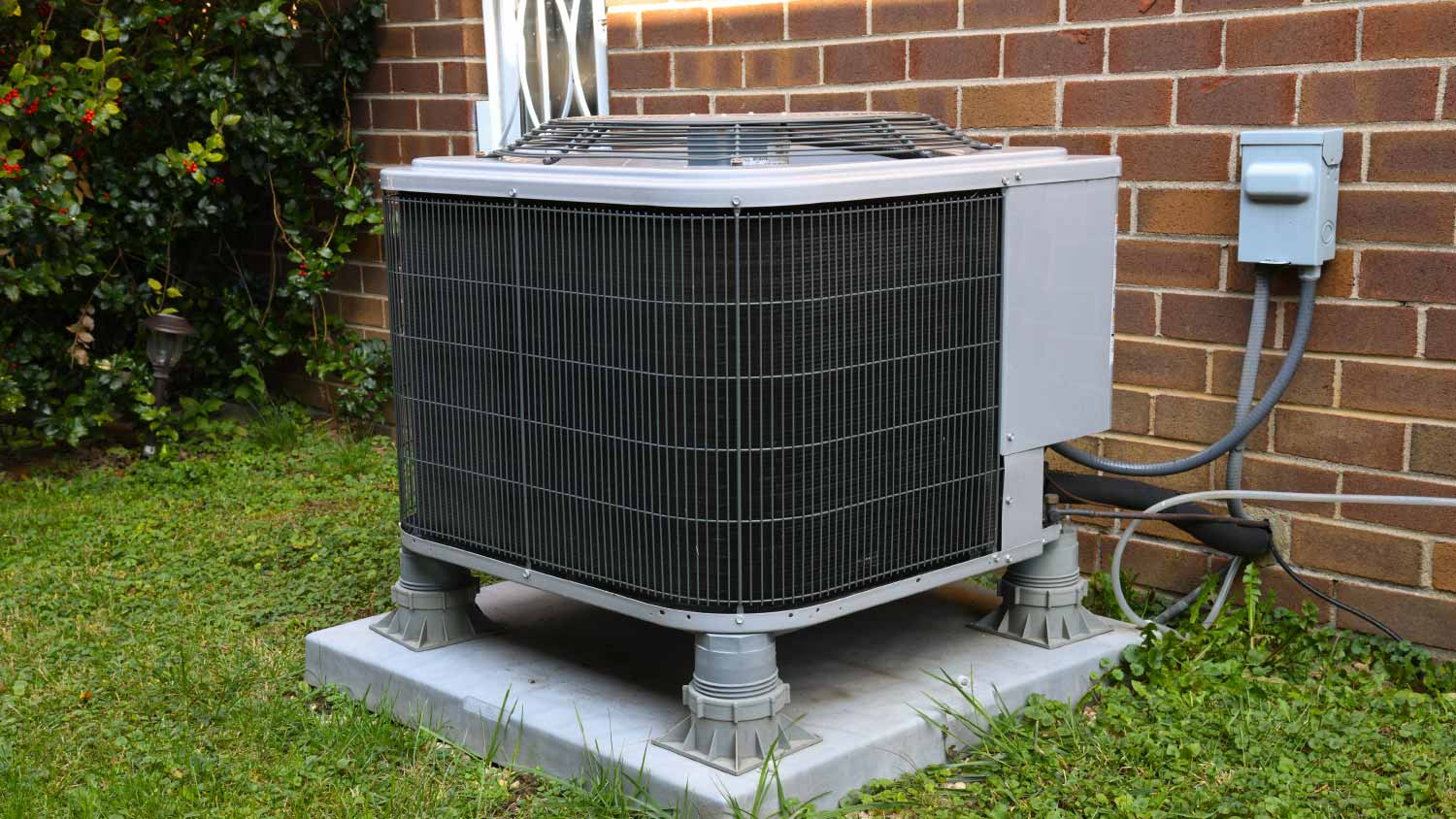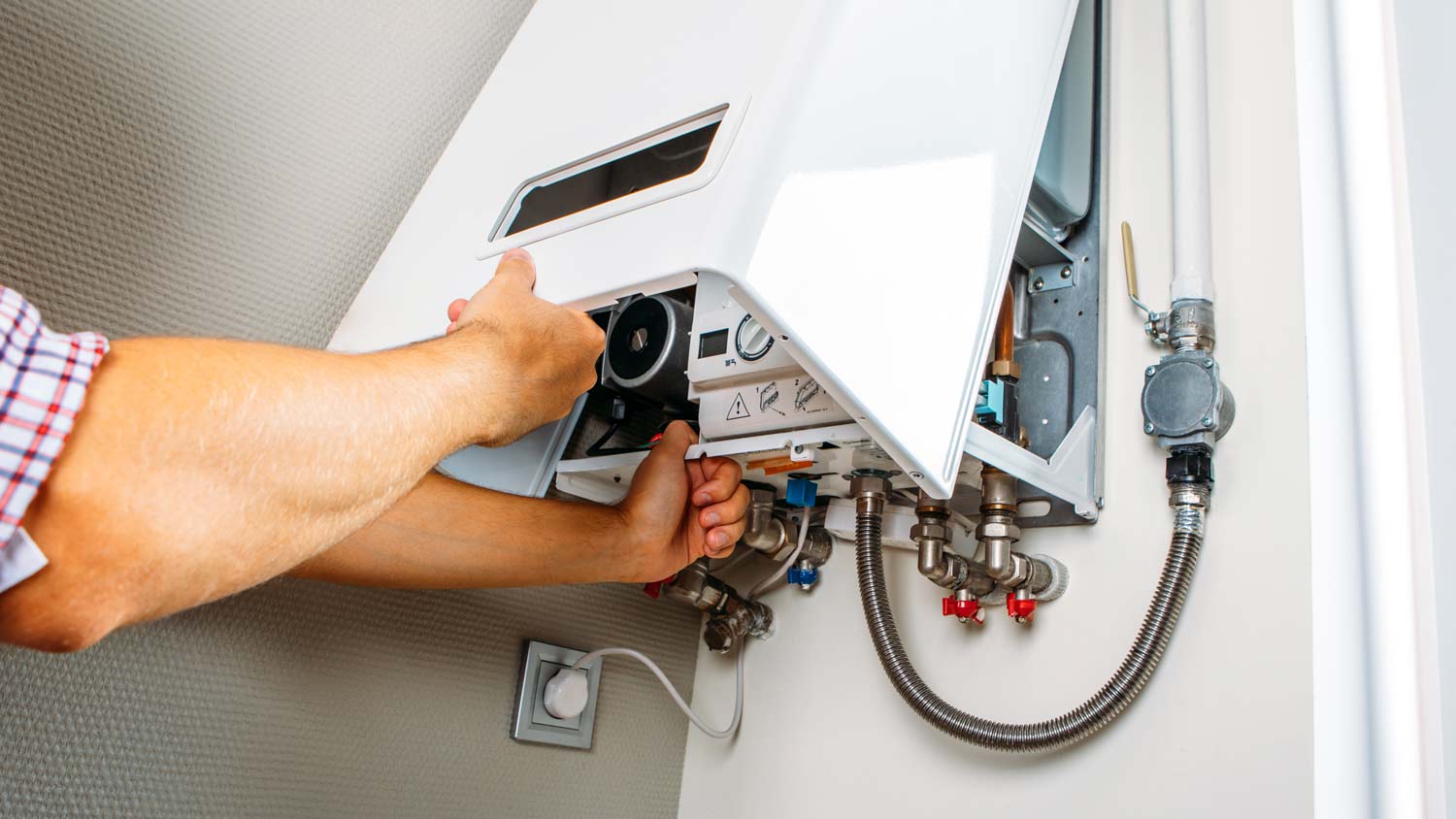
Discover the factors influencing air duct replacement costs in Atlanta, GA. Learn how to save money and make an informed decision for your home's comfort.
Keep your home cool and energy-efficient with an HVAC system upgrade


Upgrading your HVAC system can cut your energy bill by $140 annually.
New, energy-efficient HVAC models use 30% to 50% less energy than older units.
You may also need to upgrade your ductwork, insulation, or thermostat for optimal performance.
Replacing your HVAC system costs $5,000 to $12,500.
If your heating and cooling units are no longer performing at their peak, it’s time to upgrade your HVAC system. However, not all issues are due to your unit—you may also need to inspect your ductwork, insulation, and thermostat. Our guide will show you the best ways to upgrade your HVAC system with the help of an AC installer.

Proactively upgrading your HVAC system is a good idea so you don’t need to make big, expensive decisions during a summer heat wave. Here are factors to consider when upgrading your HVAC system:
Your HVAC system has an indoor gas furnace and an outdoor electric cooling unit. However, other options exist, such as an indoor heat pump or a mini-split versus central air outdoor unit.
Either way, many HVAC pros recommend replacing both the indoor and outdoor systems at the same time. Not only will you save on labor costs by knocking out two jobs simultaneously, but you’ll also be upgrading both systems, which will help them work more efficiently together.
Upgrading your HVAC unit to a more energy-efficient model can save you money on your heating and cooling bills. You may also be eligible for rebates and tax credits through local, state, or federal programs. For example, installing a certified ENERGY STAR heating and cooling system can cut your annual energy bill by $140. Review HVAC energy-efficiency ratings and install a system with an upgraded SEER rating compared to your current model.
It’s important to find the right size units for your new HVAC system. For instance, when considering what size AC unit you need, you need to understand BTUs (British Thermal Units). Having too few BTUs won’t effectively cool your home, but having too many BTUs will make your unit cycle more, wearing it down and causing more humidity. In fact, too much moisture in your home can cause mold growth, which can be hazardous. When choosing what furnace size your home needs, you’ll also need to consider square footage and BTUs.
You should also think about AC tonnage, which measures how much heat the unit can remove in a room or home per hour. AC tonnage depends on BTUs, and the size of the room or house you are cooling will determine the best BTUs and tonnage for your AC.
Ductwork lasts 10 to 25 years, but if your ductwork is too large or small for your home, it can lead to inefficient heating and cooling. Ductwork for an average home should be six to 12 inches in diameter.
If you notice your HVAC isn’t working properly, consider upgrading the ductwork, or at least hiring a pro to thoroughly clean the ducts. Professional ductwork cleaning costs $270 to $510, and this could save you money on upgrading an HVAC system if your ductwork just needs to be cleaned and not fully replaced.

Installing an HVAC zoning system in your home can cost between $1,500 and $8,500. Instead of having airflow through the same ductwork all at once, a zoned system allows you to allocate where the heating or cooling will go. Different sections of your home can have separate temperature settings, which helps your family to stay comfortable all year round.
Whether you’re completely upgrading the HVAC system throughout your home or just looking for ways to make it work more efficiently, giving your home’s insulation a boost will benefit your HVAC, too. Make sure your basement, attic, walls, and ceilings are properly insulated to prevent air loss and drafts.
To further boost insulation, consider installing energy-efficient windows or sealing existing doors and windows to prevent heated and cooled air from escaping. According to the U.S. Department of Energy, 30% of heating energy in a house is lost through windows.
A smart thermostat is a thermostat controlled by sensors and Wi-Fi to automatically adjust HVAC temperature settings based on user preferences or energy savings. You can control a smart thermostat from your phone or smart home hub, and the thermostat can also adjust temperature settings based on usage to maintain your preferences while minimizing energy consumption.
Are smart thermostats worth the cost? While it costs $130 to $150 to install, a smart thermostat could save you 10% to 12% on heating consumption and up to 15% on cooling, leading to ongoing energy bill savings.
When deciding whether to upgrade your current HVAC system, you’ll need to consider the cost of this major home decision. Replacing your HVAC system costs $5,000 to $12,500 or $7,500 on average. Of course, your total bill will vary based on the type of system, its size, labor costs in your area, and additional tasks needed to complete the installation. If you need to upgrade your ductwork or insulation in conjunction with the AC system, you can expect to pay more for these extra tasks.
When hiring an HVAC professional, you should consider bundling your service with add-ons to save on total labor costs. According to Angi data, 42% of customers report adding central AC services, and 13% requested installing a zoning system or thermostat. Other popular add-ons include HEPA filters, heat pumps, and humidifiers.
First, upgrading your HVAC system is not a DIY job. There are many components to consider, including the risk of electrical shock. Instead, we recommend hiring an air conditioner installer near you. An improper HVAC installation can reduce your system’s efficiency by 30%, so it’s essential to hire a professional who has the skills, tools, and experience to upgrade your system properly.
Here’s how to properly upgrade your HVAC system:
Get at least three quotes from licensed and insured installers in your area.
Have a pro thoroughly review the best HVAC options for you.
Keep up with annual HVAC maintenance.
Don’t sleep on HVAC repairs.
Change your HVAC filter about every three months.
Hire an AC professional to clean your air ducts and install an in-duct air purifier.
Install a variable speed air handler to keep your home quiet and comfortable.
Consider installing energy-efficient windows.
From average costs to expert advice, get all the answers you need to get your job done.

Discover the factors influencing air duct replacement costs in Atlanta, GA. Learn how to save money and make an informed decision for your home's comfort.

What you’ll pay in Atlanta, Georgia, for furnace repairs depends on many factors. Here’s a breakdown of what can go wrong and the cost to fix those issues.

Factors such as labor and parts impact the final price of repairing a window AC unit. Learn all of the costs associated with window air conditioner repair.

If you need to repair a gas boiler or radiator heating system, you should first talk to a pro. Here are the top radiator repair questions you should ask.

Prepping your furnace can extend the life of your unit and stop costly repairs. Follow these furnace maintenance tips for a warm, stress-free winter.

Learn about the different types of electric furnaces to decide why you would use one and which option is best for replacing your home heating system.